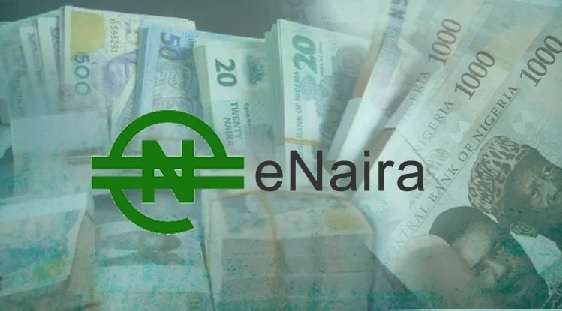President Muhammadu Buhari unveiled the eNaira on October 25, 2021, following months of publicity by the Central Bank of Nigeria (CBN). In spite of the high expectations and hype around the CBN’s digital currency, major retailers and vendors in the country are yet to adopt it over four months after launch.
The eNaira is a digital currency denominated in naira and serves as both a medium of exchange and a store of value, according to the CBN. During the launch, the apex bank Governor, Godwin Emefiele, noted that the introduction of the eNaira came after four years of research conducted by the apex bank.
According to Emefiele, 33 banks were integrated into the eNaira platform with N500 million successfully minted by the apex bank for the take-off of the programme. The regulator said while N200 million had been issued to financial institutions, over 2,000 customers had also been on-boarded as of the time of the launch.
As of December 2021, the eNaira consumer wallet recorded over 583,000 downloads while the merchant wallet was downloaded 83,000 times, with downloads occurring in over 160 countries.
The CBN also recorded over 34,000 transactions through the wallets amounting to over N188m, according to the apex bank’s Controller, Enugu branch, Ch’Edozie Okonjo.
READ ALSO: 10 Major Highlights of the Signed 2022 Electoral Act
It is observed that major retail stores in Abuja and other parts of the country have yet to adopt the digital currency as a medium of exchange. Visits to stores such as Shoprite and Spa located in the Federal Capital Territory during the week revealed that the operators were not aware of how the digital currency functions.
A new report by a law firm said the acceptance of eNaira across the country is threatened chiefly by poor mobile networks and the limited spread of Internet-enabled devices.
The report noted that, in most rural regions of Nigeria, network penetration is still heavily dependent on 2G and 3G networks, which spells difficulty for eNaira transactions hinged on the Internet.
According to the report, a further concern associated with the launch of the eNaira is the attendant cybersecurity threats that may arise.

